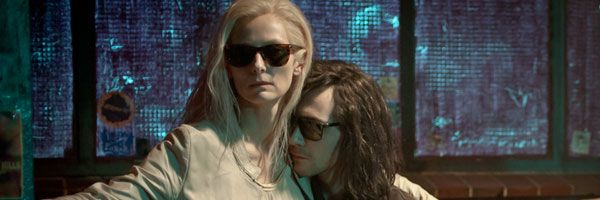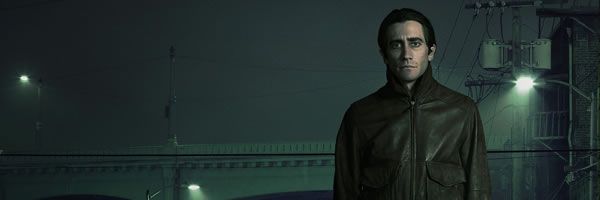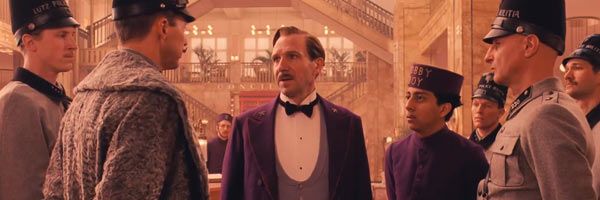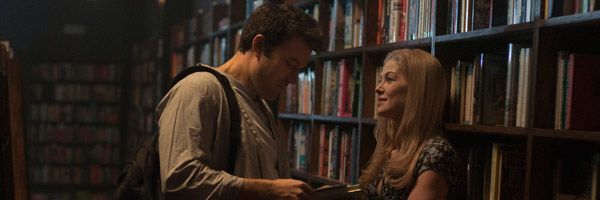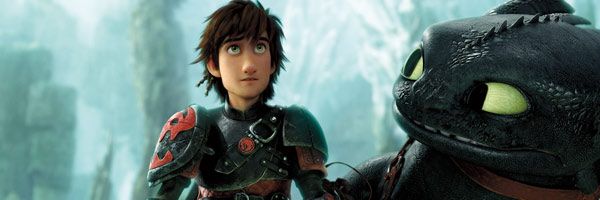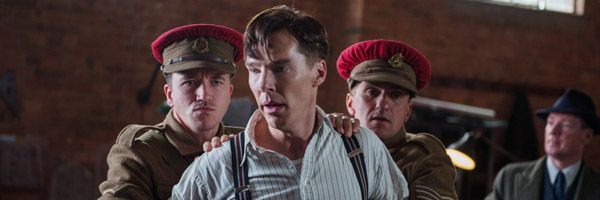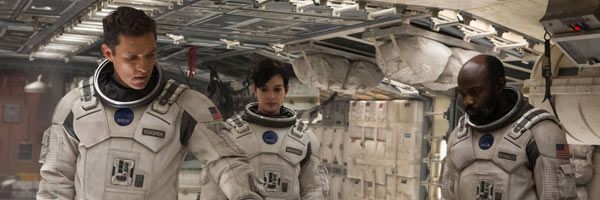Filmmaking is a collaborative medium. There are many, many moving parts that must come together just right to create a cohesive moviegoing experience, and when key aspects of the filmmaking team excel, the final product is all the better for it. This is especially apparent in the world of film composing. There were a number of original scores this year that were notable for one reason or another, and so whittling it down to a list of the 10 best scores was no easy task. The final compilation is as eclectic as it is impressive, which just goes to show there’s no one right way to score a movie. Check out my Top 10 film scores of 2014 after the jump.
10. The Guest
For their follow-up act to the excellent horror film You’re Next, director Adam Wingard and screenwriter Simon Barrett decided to go old school with an 80s throwback thriller called The Guest. The film is a wildly entertaining experience in the vein of classic John Carpenter with Downton Abbey alum Dan Stevens playing a Terminator-esque “good bad guy†taking refuge in a small town. Key to the film’s success is composer Steve Moore’s original score, which is fittingly throwback in nature as well, complete with pulsating synth and plenty of 808 drums. The score not only drives the film’s action; it helps define the movie’s tone. While disturbing and somewhat scary at times, Moore’s music helps to convey that, above all, The Guest is so much fun.
9. Only Lovers Left Alive
Â
Filmmaker Jim Jarmusch’s drama about bored vampires is wonderfully entrancing, and for the score to the meandering picture, Jarmusch turned to a collaboration between his band SQÃœRL and composer Jozef Van Wissem. It’s a fruitful partnership, and in light of Tom Hiddleston’s character’s fascination with rock music, the guitar-heavy score provides an excellent backdrop for the ensuing character interplay. Only Lovers Left Alive isn’t particularly plot driven, which is part of the film’s charm. It’s an intense, longing gaze into the existence of two people who’ve seen it all, and the brooding, humming score fits perfectly.Â
8. Godzilla
Â
Based on the sheer quantity of original scores he’s able to pump out (he appears on this list three times), it would appear that composer Alexandre Desplat is superhuman. But the fact that his large body of work is consistently so good is what makes him special. With Godzilla, Desplat takes on his first massive blockbuster (Deathly Hallows is more operatic than blockbuster-ish, I’d argue), and the results are appropriately bombastic. From the opening credits it's clear that Desplat has honed in on something special here, a score that evokes the monstrosity of the titular creature without being too on the nose. The heavy use of horns aids in making the major set pieces feel unique—a tall order in light of how many similar blockbusters flood the marketplace these days—and it fits wonderfully with director Gareth Edwards’ distinctive spin on the tentpole formula.
7. Nightcrawler
I’ll be honest, I’ve never really been particularly taken with any of James Newton Howard’s scores. It’s not that they’re bad; they just never really made a strong impression. With the terrific psychological thriller Nightcrawler, however, Howard has put together something that’s truly memorable. Dark, muddled tones mirror the uneasiness the audience feels when faced with Jake Gylleenhaal’s Lou Bloom, a psychopath for the ages, but Newton brilliantly plays into the character’s inherent charm with something surprising: a hero’s theme. It’s a wonderfully ironic touch, as the twisted, heroic guitar riff evokes the way Lou sees himself, giving the creepiest character of the year his own theme song.
6. Inherent Vice
Â
After putting together two striking, prickly scores for Paul Thomas Anderson’s last couple of films—There Will Be Blood and The Master—composer Jonny Greenwood offers something completely different in his score for Inherent Vice, Anderson’s loose and colorful pothead detective story. PTA’s film sucks viewers in and takes them on a mesmerizing, drug-fueled trip, and the journey is made all the more enticing by Greenwood’s hazy score, which eases viewers into the world and moves them from one crazy scenario to the next. Greenwood also pays homage to classic film noir, serving as a perfect juxtaposition on PTA’s riff on the structure structure.
Continue Reading the Top 10 Scores of 2014 on Page 2
5. The Grand Budapest Hotel
Here’s where we see Desplat’s versatility. That he’s able to create two scores as wildly different as Godzilla and The Grand Budapest Hotel in the same year is insane. Desplat has composed the score for the past three Wes Anderson films in a row, and with The Grand Budapest Hotel he crafts an opulent, Eastern European-influenced piece of work that weaves in and out of the caper genre. Given that this is a Wes Anderson film, the music is delightfully playful, but the director goes darker than ever before in certain areas of the picture, which gives Desplat the opportunity to follow accordingly. It’s quite possibly the richest Anderson/Desplat collaboration to date, and it makes me hope this partnership never ends.
4. Gone Girl
Here’s another director/composer collaboration that offered up a departure from what came before. With Gone Girl, Trent Reznor and Atticus Ross crafted quite possibly the funniest score of the year; a composition that mirrors the character arc of Rosamund Pike’s titular Amy Dunne by beginning in surprisingly traditional fashion (well, traditional for Reznor and Ross anyway) with sappy, melodic tones before taking a sinister turn at the film’s halfway point. It’s a score that’s in lock-step with Fincher’s satirical, darkly comic tone for the film itself, and it’s incredibly creepy to boot.Â
3. How to Train Your Dragon 2
With How to Train Your Dragon, composer John Powell created one of my favorite scores of the past decade, so my expectations for his work on the follow-up were high. Instead of simply relying on the success of what he did before, Powell dispenses with the first film’s themes in the opening sequence of How to Train Your Dragon 2 before moving on to new territory. It’s a score that’s as sweeping as it is intimate, drawing on traditional Celtic music but never relying on it too heavily. Powell uses choirs to chilling effect, evoking the grandness of the landscape while maintaining focus on the specific characters’ emotions, which is where the music really sings. The key to Powell’s genius is that he values emotion above all else, and that carries over into how the music accompanies the film itself, and results in an overwhelmingly emotional experience.Â
2. The Imitation Game
Â
It feels like overkill to put Alexandre Desplat on here three times, but the guy is just that good—and I’d argue The Imitation Game might possibly be his best work to date. The propulsive, sweet, and melancholic score gives immediacy to this World War II drama about Alan Turing, a genius mathematician and code breaker who helped win the war but was persecuted for being a homosexual. It’s a simple score really, mostly piano and strings-driven, but Desplat has put together an unforgettable theme that almost feels like stepping inside Turing’s mind.Â
1. Interstellar
Quite possibly the most popular composer since John Williams, Hans Zimmer has been responsible for a great number of memorable themes and scores over the past few decades. His partnership with director Christopher Nolan has been fruitful, giving us the “BRAAM†of Inception and the massive chorales of The Dark Knight Rises, but for Nolan’s sci-fi epic Interstellar the two went to church to spectacular results. Zimmer’s unique, dreamlike score uses pipe organ to incredible effect, giving us something as majestic and emotional as what Nolan puts up on the screen. It’s truly unlike anything I’ve heard before, and when the score hits its climax through those booming IMAX speakers, it’s impossible not to be moved. This is the power of movie music.
Honorable Mentions: The Theory of Everything, The Homesman, Fury
For more of our Best of 2014 coverage, peruse the links below:
Movies
- 10 Best Surprises of 2014, From Emily Blunt as an Action Star to THE LEGO MOVIE Not Sucking
- 5 Great Film and Music Moments From 2014
- 10 Great Films of 2014 You May Have Missed and You Should Absolutely Watch
- Oscar Beat: For Your Consideration – Overlooked Films, Performances, and Directors from 2014 That Warrant Recognition
TV



